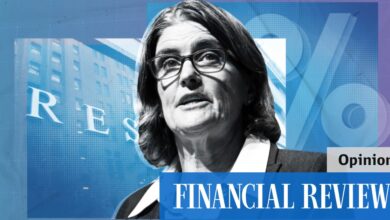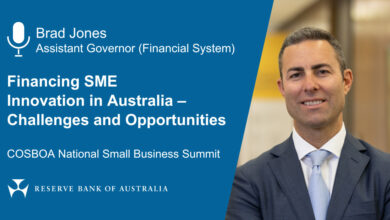Treasurer Jim Chalmers must not accept a low-growth future

The announced streamlining of resource project environmental approvals and moves to ease the regulatory burden on financial institutions appear to be worthwhile initiatives as far as they go.
But as business leaders suggested, it hardly adds up to the clear policy frameworks and principles, and incentive-sharpening tax, workplace, climate change, and regulatory reform agenda needed to boost business investment, lift productivity and avoid the low-growth future.
‘Obsession’ with monetary policy
In his first speech as Business Council of Australia president, Geoff Culbert told the Summit’s Monday night dinner that Australia’s self-image was not matched by the political reality as the nation is dragged down by a crisis of short-term thinking. A once bold and courageous pioneering nation which didn’t use to be afraid to back leaders who took on big hard reform challenges that involved short-term pain, now has an unforgiving political culture with no leeway for necessary reforms in the long-term national interest.
As BHP president Geraldine Slattery told the Summit, Australia has great opportunities in a low-carbon world, but every policy choice needs to be viewed through the lens of what will “make Australia more competitive”. Asked about the political rancour over corporate profits, Paul Schroder, head of the biggest industry super fund, AustralianSuper, said, “we’ve lost the size of the pie discussion”, in favour of a political focus on redistribution rather than on growth.
As the last treasurer to implement the last major productivity-enhancing reform – the introduction of the GST package 24 years ago – Peter Costello told the Summit that the world had given up on the “hard stuff” of structural reform to drive growth and prosperity.
Instead, Mr Costello called out a “near obsession” – particularly by financial markets – with monetary policy, as the booming Wall Street and Australian sharemarkets ran ahead in the belief that inflation had peaked and interest rates would start to fall later this year.
This lack of focus on structural reform may now matter more because, as BlackRock global chief investment strategist Wei Li told the Summit, the pandemic marked the end of the “great moderation” when managing the economy was largely a matter of fine-tuning overall demand around a steady growth of supply. Now economic management is about managing the big ongoing supply shocks, including geopolitical tensions, labour market shortages, the disruptions of the low-carbon transition and artificial intelligence.
This new era provides opportunities as well as risks, but the point of the unambitious Intergenerational Report projections is this. Australia’s political culture does not understand the nation’s privileged position of having one of the world’s highest standards of living. It is not guaranteed.
On reasonable assumptions, Australia’s per capita GDP today would be $14,000, or 15 per cent, lower if the economy had grown by 2.2 per cent, rather than 3.1 per cent over the past four decades. Not accepting that for the future is the choice we face today.





